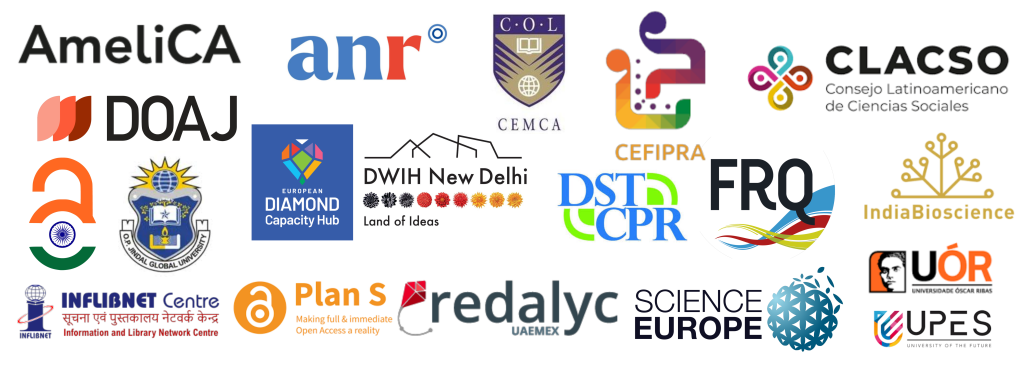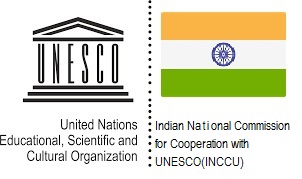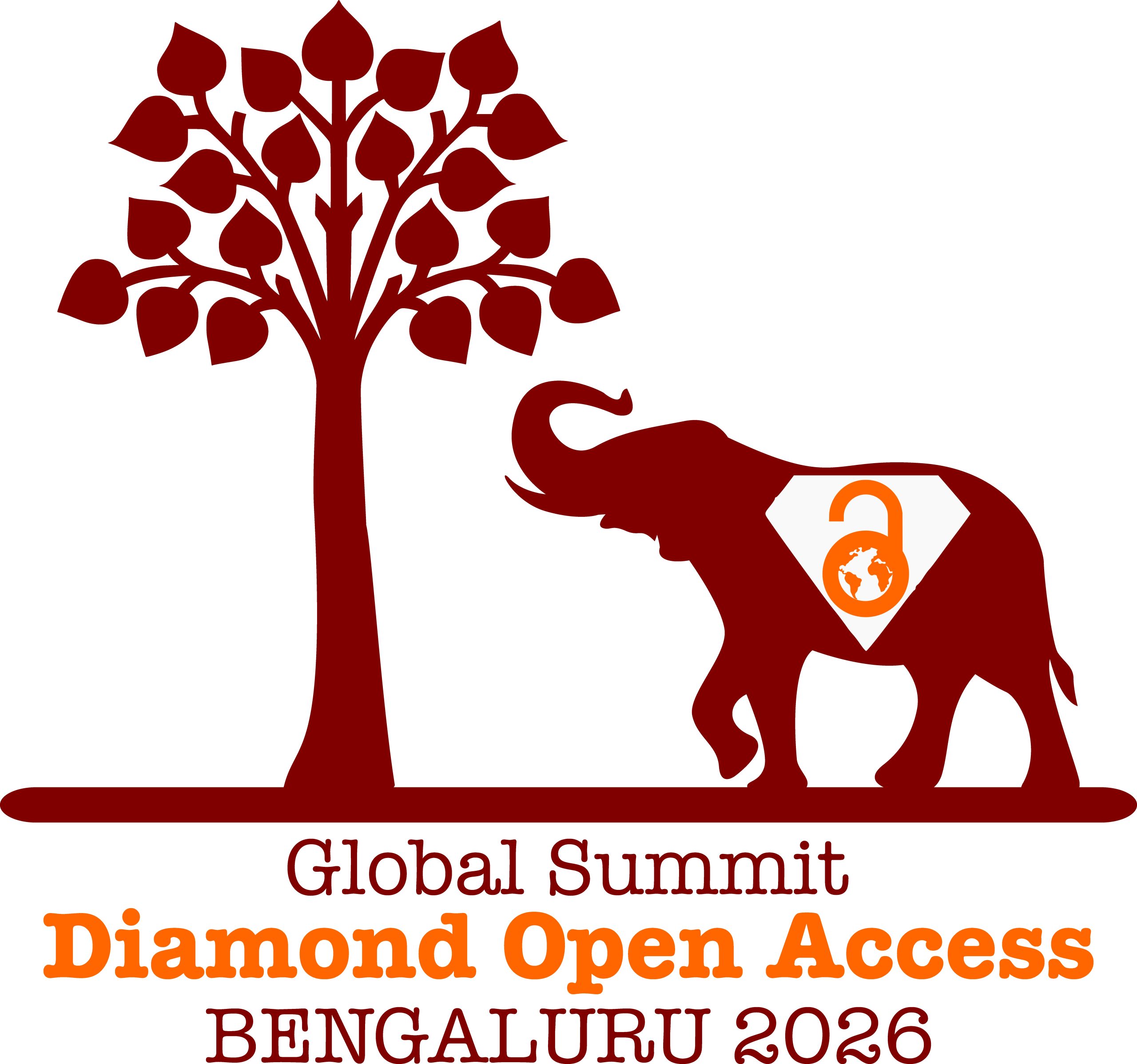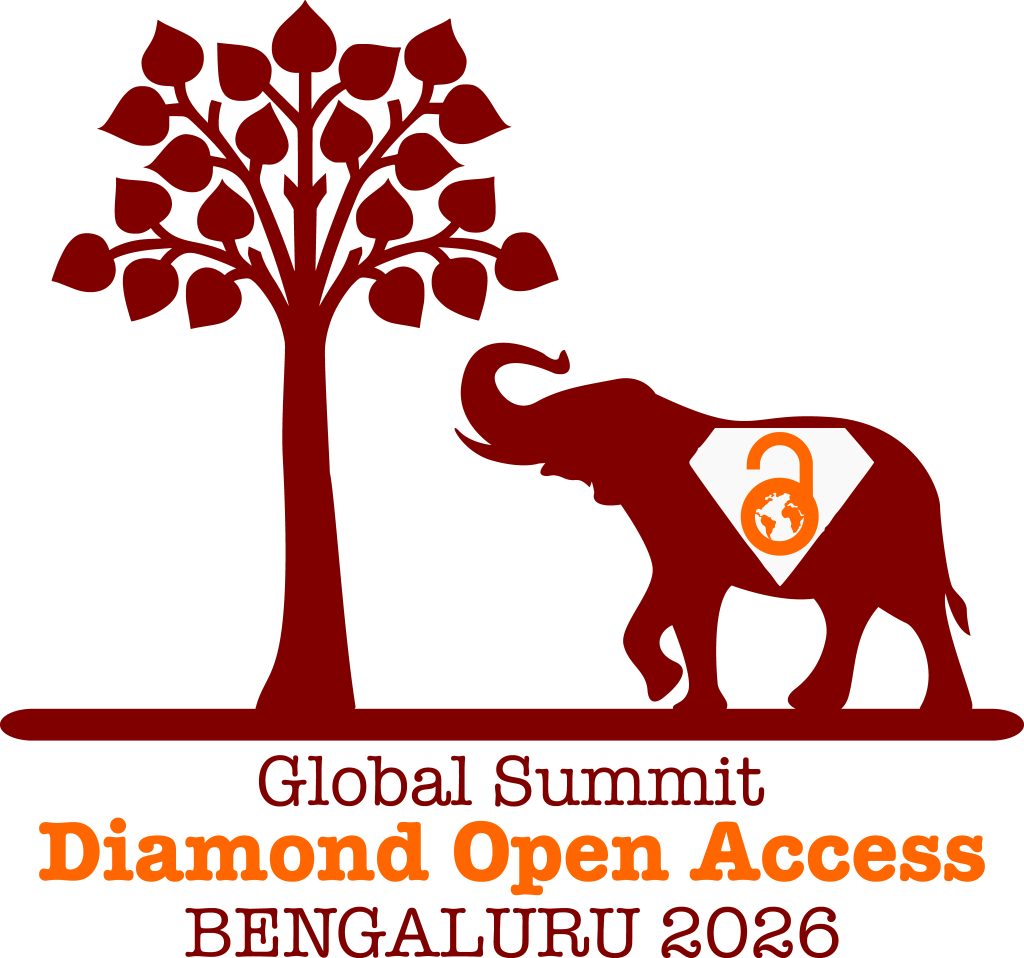3rd Global Summit on Diamond Open Access
2-6 February, 2026 | Bengaluru, Karnataka, India
Theme: Collaboration for Equitable Digital Infrastructures and Knowledge Commons in Agriculture and Broader Scientific Research Systems
Workshops & Plenary Sessions (2–5 Feb): Taj Yeshwantpur, Bengaluru
Venue: University of Agricultural Sciences, Bangalore
Countdown to the Summit
About Diamond Open Access
Diamond Open Access is a community-led scholarly publishing model without financial barriers for authors or readers, making knowledge available as a global public good. It promotes equity, sustainability, multilingualism, and bibliodiversity, aligning with the Budapest Open Access Initiative, the UNESCO Recommendation on Open Science, the Action Plan for Diamond Open Access, and the Global Digital Compact.
The Global Summits on Diamond Open Access
The Global Summits on Diamond Open Access are pivotal gatherings that unite stakeholders from across the globe to advance a scholarly communication system that is equitable, sustainable, and community-driven.
Toluca, Mexico (2023)
Theme: Equity, Quality, Usability, Sustainability
Held from October 23–27, 2023, in Toluca, Mexico, the inaugural summit emphasized the core principles of Diamond Open Access: equity, quality, usability, and sustainability. The event brought together journal editors, researchers, and policymakers to discuss and promote a non-commercial, community-led approach to scholarly publishing. The summit underscored the importance of these principles in fostering inclusive and accessible academic communication.
Cape Town, South Africa (2024)
Theme: Centering Social Justice in Scholarly Communication to Advance Research as a Public Good
The second summit, held from December 8–14, 2024, at the University of Cape Town, South Africa focused on integrating social justice into scholarly communication. It highlighted the necessity of making research a public good by ensuring equitable access and participation across diverse communities. The summit attracted over 1,100 participants from 73 countries and featured discussions on decolonization, inclusivity, and the role of language diversity in academic publishing.
Bengaluru, India 2026
The upcoming 3rd Global Summit on Diamond Open Access under the theme: 'Collaboration for Equitable Digital Infrastructures and Knowledge Commons in Agriculture and Broader Scientific Research Systems' will build on the outcomes of the previous Summits. It will feature high-level plenaries, thematic tracks, and interactive workshops on equity, multilingualism, research assessment, and policy alignment. Posters and case studies will showcase innovations from around the world.
Sessions are designed to foster inclusive dialogue, collaboration, capacity building, and actionable policy outcomes, with careful attention to regional representation and gender balance, ensuring diverse global perspectives in every discussion.
The Summit will culminate in the Bengaluru Roadmap for Diamond OA and the launch of Regional and Global Action Plans, advancing the mission of making research a public good through equitable, sustainable, and community-driven practices.
Vision & Strategic Focus
The 3rd Global Summit on Diamond OA seeks to contribute to a resilient, equitable, and multilingual scholarly communication ecosystem underpinned by Diamond OA models and interoperable, public digital infrastructures. The Summit envisions strengthening Diamond OA across all disciplines by catalyzing collaborative governance, public investment, and sustainable infrastructure in a global knowledge commons.
Key Focus Areas
- Public digital infrastructures:
Build and provide sustainable funding for resilient, interoperable, community-owned public infrastructures and platforms that serve the research lifecycle and the public good. - Equity, inclusivity & multilingualism:
Develop inclusive publishing models that amplify the linguistic and epistemic diversity of knowledge systems and publication formats and can address technological challenges. - Collaborative & inclusive governance:
Adopt transparent and inclusive governance frameworks for institutions and scholarly societies and develop responsible research assessment. - Supportive policies & global leadership:
Align worldwide institutional and government policies for Open Access with UNESCO’s Open Science & Digital Public Infrastructure frameworks - Cross-disciplinary bridges:
Integrate scholarly perspectives on agriculture, health, environment, social sciences, and humanities.
Aims & Objectives
- Scale Diamond OA across disciplines through supportive policies, infrastructure, and funding
- Foster inclusive collaboration among diverse stakeholders
- Strengthen governance emphasizing transparency and community leadership
- Embed Diamond OA within digital public infrastructure and global policy agendas
- Encourage Responsible Research Assessment and incentives for adoption
- Address inequities in access, authorship, and visibility for underrepresented regions, languages, and disciplines
- Develop national, regional, and global implementation roadmaps
Summit Outcomes
- Global Leadership – Advancing equitable participation and visibility of underrepresented researchers and institutions worldwide in shaping inclusive, multilingual Diamond Open Access.
- Community-Owned Infrastructures: Supporting sustainable, non-commercial, community-led publishing systems.
- Knowledge Diversity: Integrating bibliodiversity, multilingualism, local journals, indigenous knowledge, and diverse formats.
- Sustainability & Capacity-Building: Developing funding models and coordinated training for repositories, journals, and libraries.
- Collaboration & Norm-Setting: Fostering cross-regional cooperation, transparent peer review, preprints integration, and alignment with UNESCO’s Open Science vision
Organisers
- Society for Promotion of Horticulture (SPH), Bengaluru
- ICAR–Indian Institute of Horticultural Research (ICAR-IIHR)
- University of Agricultural Sciences, Bengaluru (UASB)
- ICAR–Directorate of Knowledge Management in Agriculture (ICAR-DKMA)
- JPN National Centre of Excellence in the Humanities, IIT Indore
- CSIR–National Institute Of Science Communication and Policy Research (CSIR–NIScPR)
- Information and Library Network (INFLIBNET) Centre
- Indian National Young Academy of Science (INYAS)
- Commonwealth Educational Media Centre for Asia (CEMCA)
Collaborating and Supporting Organisations
National
- DST-CPR, IISc
- IndiaBioscience
- Open Access India
- UPES University
- O.P. Jindal Global University
International
- Science Europe
- Agence Nationale de la Recherche (ANR), France
- AmeliCA/Redalyc
- Commonwealth Educational Media Centre for Asia (CEMCA)
- CLACSO-Latin American Council of Social Sciences
- cOAlition S
- Directory of Open Access Journals (DOAJ)
- OPERAS - European Diamond Capacity Hub
- Centre Franco-Indien pour la Promotion de la Recherche Avancée (CEFIPRA)
- German Centre for Research and Innovation- DWIH New Delhi
- Universidade Óscar Ribas (UOR), Angola




